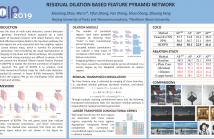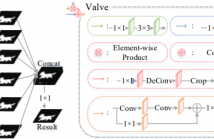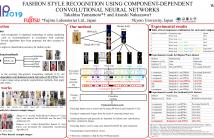
The International Conference on Image Processing (ICIP), sponsored by the IEEE Signal Processing Society, is the premier forum for the presentation of technological advances and research results in the fields of theoretical, experimental, and applied image and video processing. ICIP has been held annually since 1994, brings together leading engineers and scientists in image and video processing from around the world. Visit website.

- Read more about VISUAL LOCALIZATION USING SPARSE SEMANTIC 3D MAP
- Log in to post comments
Accurate and robust visual localization under a wide range of viewing condition variations including season and illumination changes, as well as weather and day-night variations, is the key component for many computer vision and robotics applications. Under these conditions, most traditional methods would fail to locate the camera. In this paper we present a visual localization algorithm that combines structure-based method and image-based method with semantic information.
- Categories:
 36 Views
36 Views
- Read more about RESIDUAL DILATION BASED FEATURE PYRAMID NETWORK
- Log in to post comments
Poster.pdf
- Categories:
 7 Views
7 Views
- Read more about A NOVEL MONOCULAR DISPARITY ESTIMATION NETWORK WITH DOMAIN TRANSFORMATION AND AMBIGUITY LEARNING
- Log in to post comments
Convolutional neural networks (CNN) have shown state-of-the-art results for low-level computer vision problems such as stereo and monocular disparity estimations, but still, have much room to further improve their performance in terms of accuracy, numbers of parameters, etc. Recent works have uncovered the advantages of using an unsupervised scheme to train CNN’s to estimate monocular disparity, where only the relatively-easy-to-obtain stereo images are needed for training.
- Categories:
 20 Views
20 Views
- Read more about Revisiting Multi-level Feature Fusion: A Simple yet Effective Network for Salient Object Detection
- 1 comment
- Log in to post comments
- Categories:
 29 Views
29 Views
- Read more about Two-layer Near-lossless HDR Coding with Backward Compatibility to JPEG
- Log in to post comments
- Categories:
 13 Views
13 Views
- Read more about MULTI TASK LEARNING OF DEPTH FROM TELE AND WIDE STEREO IMAGE PAIRS
- 1 comment
- Log in to post comments
- Categories:
 18 Views
18 Views
- Read more about Fashion style recognition using component-dependent convolutional neural networks
- Log in to post comments
The fashion style recognition is important in online marketing applications. Several algorithms have been proposed, but their accuracy is still unsatisfactory. In this paper, we share our proposed method for creating an improved fashion style recognition algorithm, component-dependent convolutional neural networks (CD-CNNs). Given that a lot of fashion styles largely depend on the features of specific body parts or human body postures, first, we obtain images of the body parts and postures by using semantic segmentation and pose estimation algorithms; then, we pre-train CD-CNNs.
- Categories:
 75 Views
75 Views
- Read more about MULTIPLE INSTANCE DENSE CONNECTED CONVOLUTION NEURAL NETWORK FOR AERIAL IMAGE SCENE CLASSIFICATION
- Log in to post comments
With the development of deep learning, many state-of-the-art natural image scene classification methods have demonstrated impressive performance. While the current convolution neural network tends to extract global features and global semantic information in a scene, the geo-spatial objects can be located at anywhere in an aerial image scene and their spatial arrangement tends to be more complicated. One possible solution is to preserve more local semantic information and enhance feature propagation.
- Categories:
 8 Views
8 Views
- Read more about Virtual Reality Video Quality Assessment Based on 3D Convolutional Neural Networks
- Log in to post comments
As a new medium, Virtual Reality (VR) has attracted widespread attentions and research interests. More and more researchers have built their VR image/video database and devise related algorithms. However, the existing methods of VR video quality assessment are not very effective, and one of the most important reasons is that the database is not suitable. To this end, this paper proposes an efficient VR quality assessment method on self-built database.
- Categories:
 9 Views
9 Views
- Read more about CNN-BASED INDOOR OCCUPANT LOCALIZATION VIA ACTIVE SCENE ILLUMINATION
- Log in to post comments
- Categories:
 24 Views
24 Views